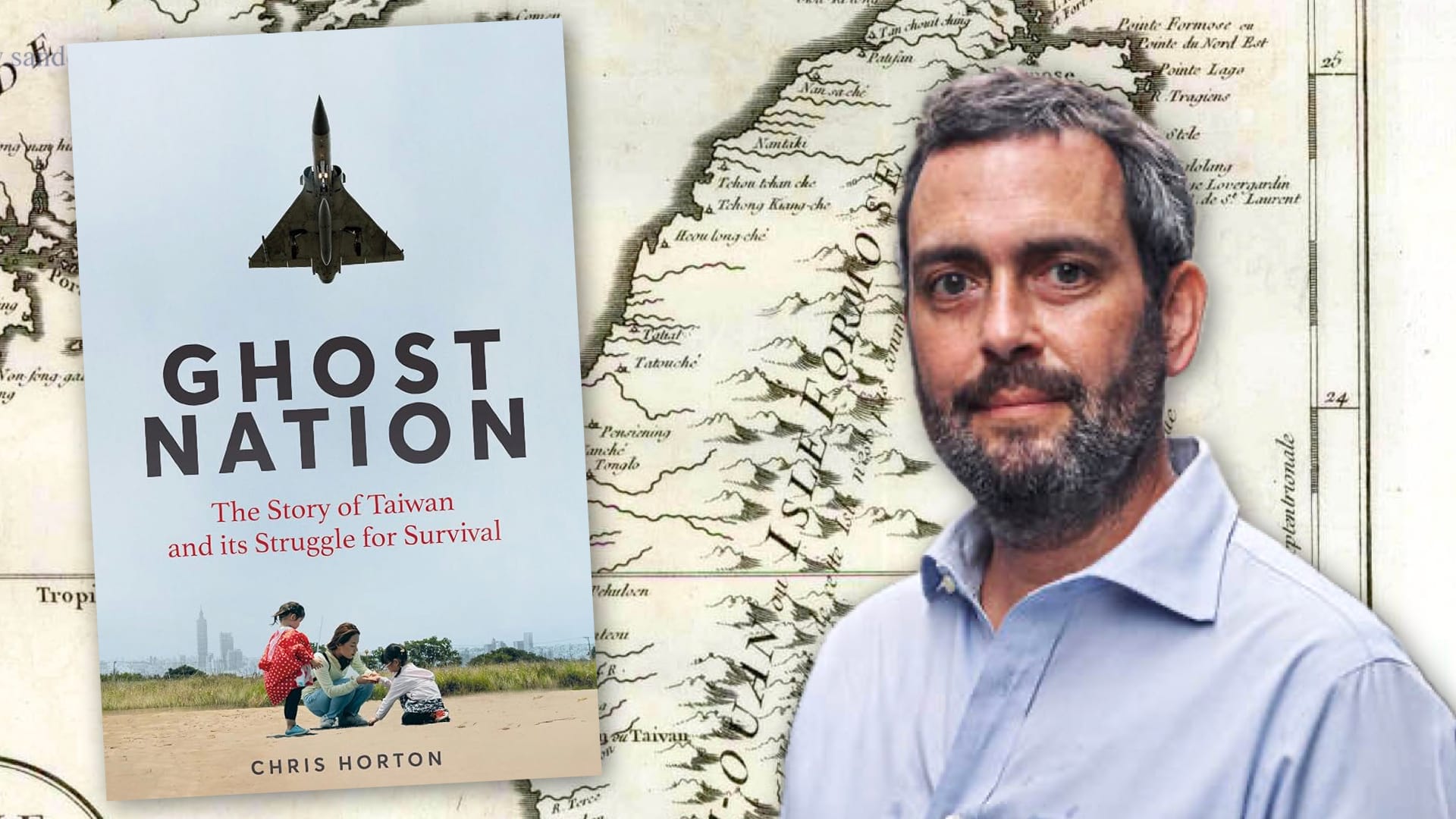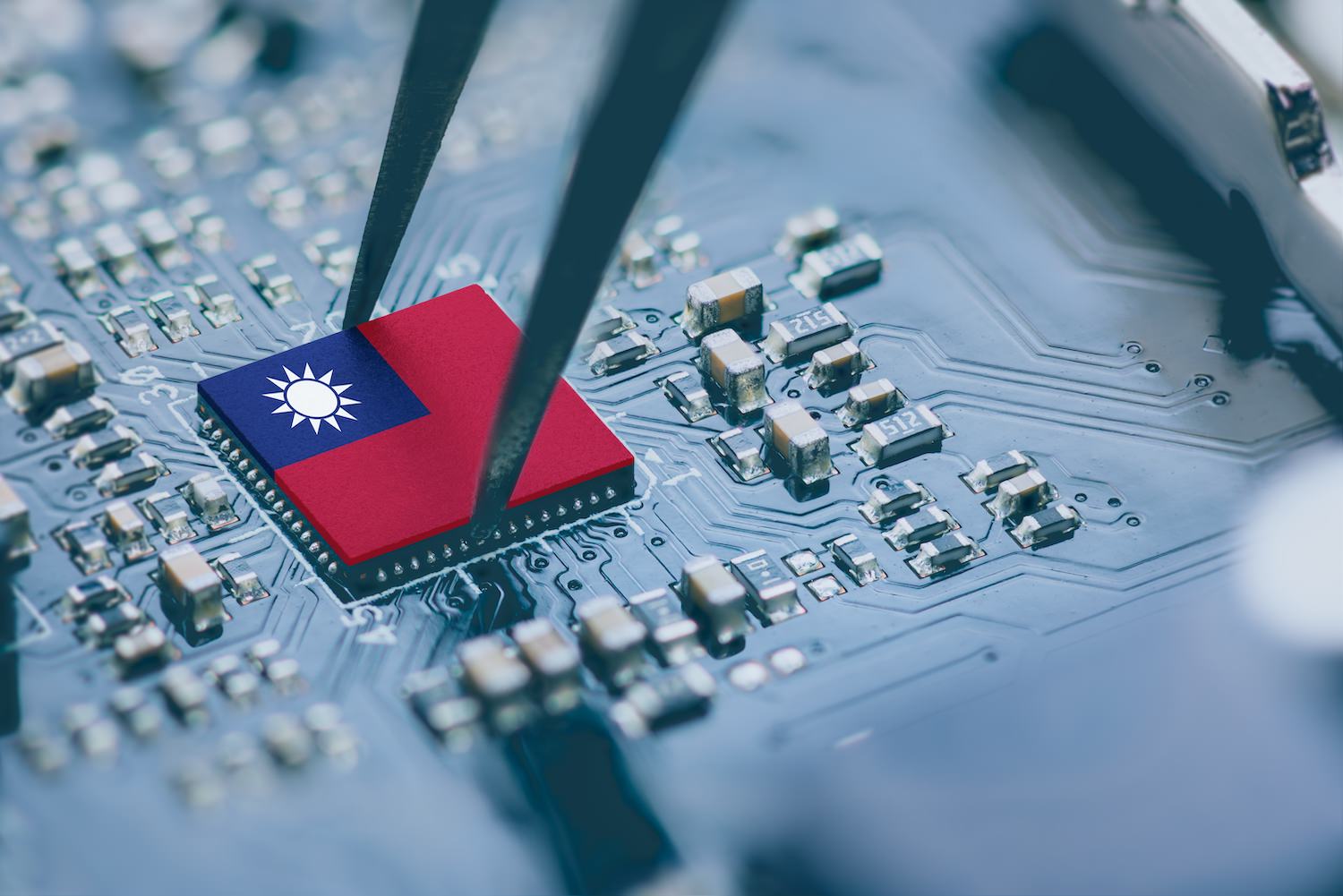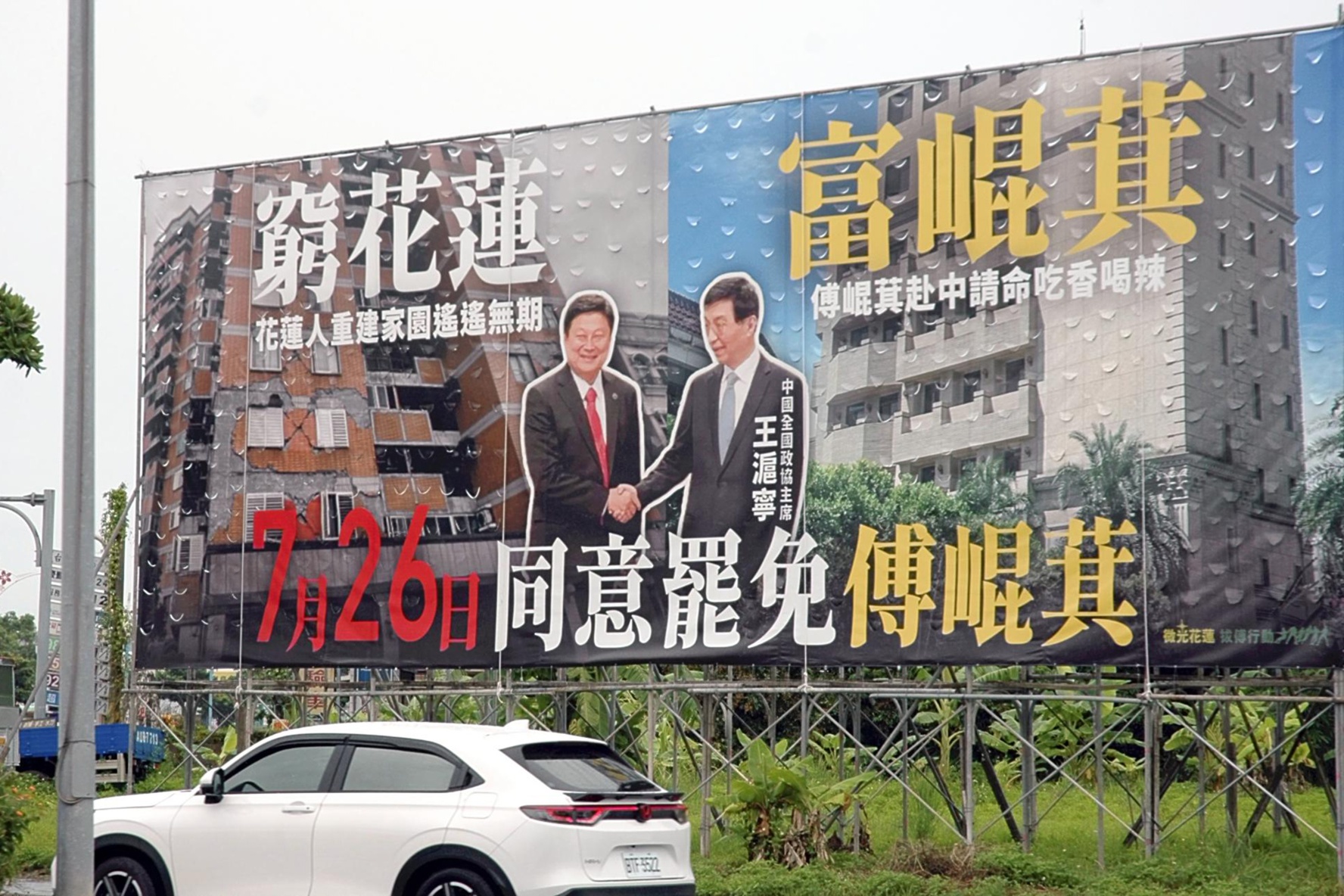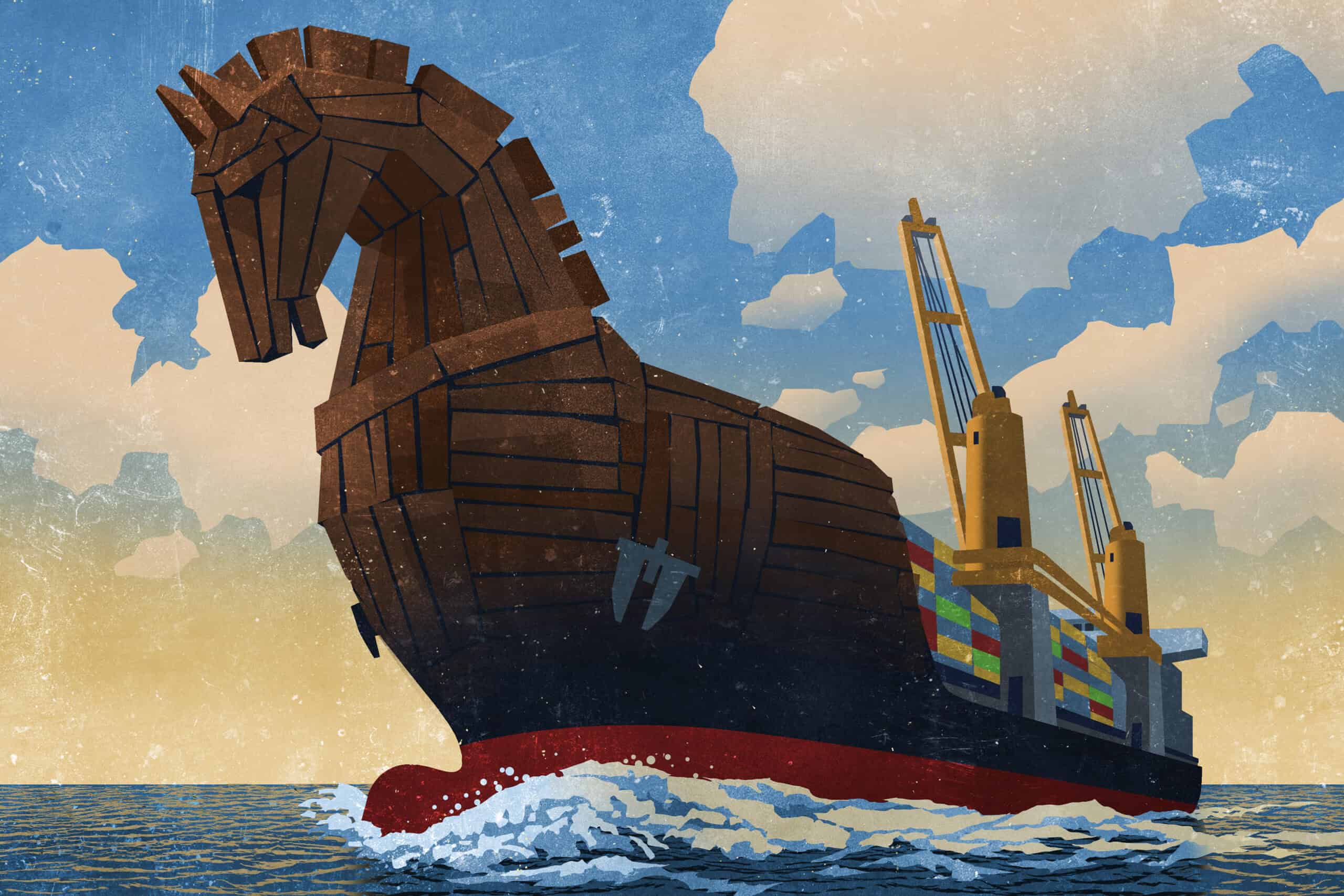Podcast: ‘Ghost Nation’ Tells the Story of Taiwan — And Why It Matters
What do you really know about Taiwan? A new book, “Ghost Nation: The Story of Taiwan and its Struggle for Survival” aims to fill the knowledge gap for Western audiences.

Most Americans don't think about Taiwan much. And lately, when they do, it is in the context of escalating tensions with China. A long-time hub of manufacturing and now a global powerhouse in the semiconductor industry, people may have a sense that Taiwan is important, but they almost certainly lack knowledge of its complex history and how it came to be a bulwark of democracy in East Asia.
That knowledge gap is the one journalist Chris Horton hopes to fill with his first book, Ghost Nation: The Story of Taiwan and its Struggle for Survival. Highly readable and engaging, the book tells the story of Taiwan from its earliest days, inhabited by indigenous people, through its colonial history and into modern times. Crucially, it dispels the notion that Taiwan is somehow a ‘part’ of modern China, and offers lucid critique on how CCP information warfare uses terms like ‘mainland China’ and ‘reunification’ to imply that Taiwan is, temporarily, a satellite state — perhaps one of several.
Horton, an American-born journalist who has written for The New York Times and various other outlets, came to the region twenty years ago, having lived in China and Hong Kong for a decade before he moved to Taiwan in 2015. When I visited Taipei in late 2023, I met up with Chris at an Australian bar to learn everything I could about Taiwan in three hours. The knowledge he shared with me that evening is very much on display in Ghost Nation, and it's an accessible and compelling entry point into the region's complex and constantly shifting politics.
Some things most Americans don't know: Taiwan was under Japanese rule from 1895 until 1945 — and yes, during World War II. Prior to that, it was controlled by the Qing Dynasty (ethnically Manchu people — as in Manchuria) for over 200 years. And in the early 1600's, it was the site of Dutch and Spanish colonial trading, which brought clashes with multiple indigenous tribes.
Many people may know something about the Kuomintang (KMT) and its longtime leader Chiang Kai-shek, but fewer know anything about its decades of brutal authoritarian rule (the White Terror) or the infamous “228 incident” in 1947 that precipitated the imposition of martial law, which was in place for forty years.

After the Maoist Chinese Revolution in 1949, Chiang's Republic of China government relocated to Taipei and became a “government in exile” — waiting, in theory, to depose the communists. As that hope faded and Cold War fears about the spread of communism in Asia preoccupied Western leaders, Chiang and his wife Soong Mei-ling became cultural ambassadors of a sort, representing an anti-communist, US-aligned position in the region — and increasingly becoming a thorn in the side of Beijing (then Peking). Chiang's authoritarian rule and KMT involvement in organized crime also became sore points for Western governments, but were overlooked as preferable to CCP control.
With the death of Chiang Kai-shek in 1975, KMT rule transitioned to his son, Chiang Ching-kuo. But by the mid-1980's, the Chiang family's grip on power was fading. The period from 1986 to 1987 saw sweeping changes, with the end of martial law and new laws that made alternative political parties legal. The Democratic Progressive Party (DPP) was formed in 1986 and has become dominant in Taiwanese politics, controlling the presidency since 2016.
However, as tensions continue to rise with China, Taiwan's future as a democratic nation is less certain. Horton makes a strong case that the Kuomintang, seen by some as “center-right,” is increasingly a pro-unification Han ethno-nationalist party serving as a proxy for CCP intentions in the region, rather than a good-faith participant in a democratic system.
Likewise, the smaller and newer Taiwan People's Party (TPP) tends to align with KMT positions, thus further undermining the DPP's hold on power. And while the DPP tends to view the United States as a strong ally, KMT and TPP partisans tend to see the US as an interloper, or irrelevant.
All of this adds up to a very volatile situation that is growing less predictable by the day. As Xi Jinping ages (he's now 72), there is a feeling of growing urgency to make “reunification” (itself a misnomer, as Taiwan was never under CCP rule) part of his legacy. Back in 2023, most people I spoke with in Taiwan had the feeling that the CCP would continue to use information warfare, military saber-rattling, political infiltration, and economic maneuvering to grind Taiwan into compliance.
Now in 2025, there is a growing sense that time is short, and military conflict seems more likely. Horton estimates the economic impact of a conflict over Taiwan to be in the neighborhood of $10 Trillion, or around 10% of global GDP. And given the strategic supply chain position held by Taiwan Semiconductor Manufacturing Company Limited (TSMC), easily the world's most important chipmaker, it is nearly impossible to predict the outcome of such a conflict.
While there have been some efforts to mitigate risks surrounding TSMC's central position in global supply chains, they are nascent and immature. Any disruption of the company's Taiwan operations would have major implications for dozens of industries including automotive and manufacturing, but crucially cloud computing, artificial intelligence, and data centers.
The Trump administration seems increasingly detached from Taiwan as it hopes to build better relations with Beijing, most recently denying President Lai Ching-te a diplomatic stopover in New York. And some analysts point to increasing political polarization, citing a recent failed recall vote that would have unseated a swath of KMT members in the legislature, who now hold the majority.
While most Americans don't know why they should know about (and much less care about) Taiwan, Horton offers compelling reasons. First, the small island nation makes our daily lives and economic reality possible — from iPhones to AI, and beyond. Second, if we care about democracy around the world – particularly other nearby countries like the Philippines and Japan – we need to support Taiwan and its right to remain a democracy. Third, it's an amazing country built from an amalgam of diverse cultural influences that has disproportionately shaped the world.
If you can, go visit, have some of the amazing beef noodle soup, and a Taiwan Beer. Explore the many other types of cuisine — and be sure to talk to the locals about what their democracy means to them. Taiwan is a stand-in for a much broader, global conversation about the future of democracy. Ultimately, if we value democracy anywhere, we need to defend it everywhere. ◼
Dave sat down with Chris Horton for his podcast series, “Dave Troy Presents.” Listen to their conversation here. Ghost Nation is available at your local bookseller, or online.
Podcast: Dave Troy Presents + Additional Reading










